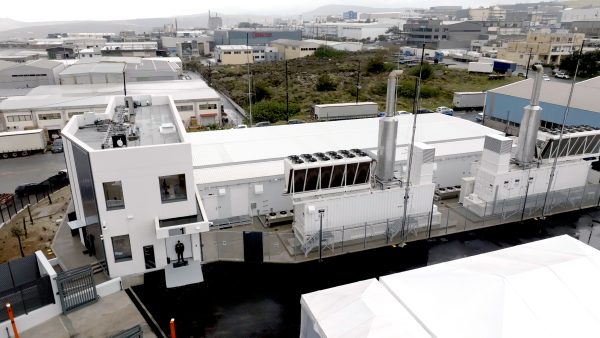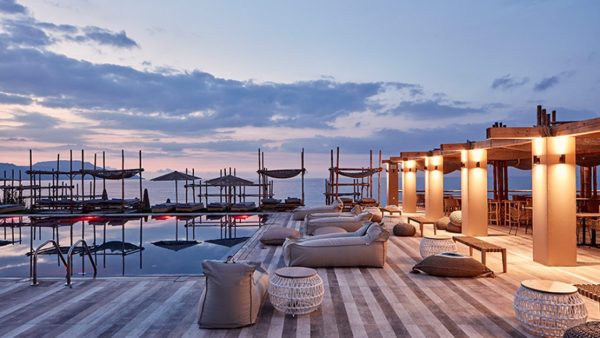
While sustainable growth is a matter of first priority for the private sector of tourism and Greek hotels, a “big “hole” in the financing of small and medium-sized hotel companies from the public sector is holding back the path towards the “green” transformation of Greek tourism.
Large companies in the hotel industry due to capital have a greater opportunity to carve out a path of sustainable development, but the same is not the case for the thousands of small and medium-sized hotel companies.
No funding
The problem is not small and concerns thousands of businesses. According to the data of the Hellenic Chamber of Hotels, of the 10,087 hotels in the country, 4,600 are one and two star hotels, while including the three star hotels (2,903) they reach 7,500 or almost 70% of all Greek hotels, which are, however, excluded from a series of financing actions.
What the operators say
The difficulty of adapting to the sustainable development of small and medium-sized units of Greek tourism was recently pointed out by the former president of the Association of Greek Tourism Enterprises-SETE, Mr. Yannis Retsos, and he underlined the need for small neighboring units to cooperate wherever possible. But the vice-president of SETE, Mr. Giorgos Vernikos, speaking yesterday at the presentation of the INSETE study “Proposals for the promotion of sustainable tourism in Greece” underlined the difficulties faced by small and medium-sized enterprises in order to create a sustainable development that goes through and through the green their transformation.
And the President of the Panhellenic Federation of Hoteliers, Mr. Yiannis Hatzis, speaking at the meeting of the presidents of the country’s hotel associations, emphasized that “While we are talking about the climate crisis, the lowest category hotels are still excluded from the modernization and energy upgrade programs. We are discussing sustainable and balanced development and after three years have passed since the relevant announcements, the SAVE program has not been issued.”
One and two star hotels
The hole in funding is recognized by all hotel operators. One- and two-star hotels are exempt from the development law and as the general director of SETE think tank – INSETE, Mr. Ilias Kikilias, answered a related question of ot.gr, SETE’s position is to join.
In addition, in a memorandum of POX to the Minister of Tourism Olga Kefalogianni, it is pointed out that 1, 2 and 3 star hotels were excluded at the last minute from the possibility of joining the “Green Transformation of SMEs” Action. Every modernization intervention in hotel facilities now inevitably goes through the green transformation, explains Greek Hoteliers Federation-POX and adds that this specific action was therefore of great importance for the viability of hotel businesses and even more so for the smaller category of hotel accommodations, which were excluded from this . A corresponding program aimed at the hotel industry should be issued immediately and designed taking into account its particularities, such as the problem with the SMEs we mentioned above, so that as many companies as possible can join it.
ΕΧΟΙΚΟΝΟΜΟ scheme
POX also emphasizes that the proclamation of EXOIKONOMO II should be made public immediately, so that hotel companies can upgrade their facilities energy-wise – there is a need for prior consultation in relation to eligible costs, so that companies can make the most of it possible degree..
POX is also asking for facilitation – motivation for businesses to produce the energy they consume themselves (net – metering) through photovoltaic systems. Accordingly, it is deemed necessary: a. to immediately strengthen the existing infrastructure of the network so that it can serve the greater loads that will be created, and b. to enable businesses to install photovoltaic systems in a space that is not adjacent to their facilities.
The cutter
Finally, regarding the NSRF that due to the mandatory criterion of Annual Work Units (AWU), many small family businesses, especially those that operate seasonally, are excluded from the NSRF and are deprived of the possibility of modernization. For the specific category of businesses, the possibility of deviating from the specific criterion should be foreseen. Otherwise, we propose, says POX, either to be counted in the AWUs and the self-employed or the AWUs to be calculated taking seasonality into account.
Latest News

Greek €200M 10Y Bond to be Issued on April 16
The 3.875% fixed-interest-rate bond matures on March 12, 2029, and will be issued in dematerialized form. According to PDMA, the goal of the re-issuance is to meet investor demand and to enhance liquidity in the secondary bond market.

German Ambassador to Greece Talks Ukraine, Rise of Far Right & Tariffs at Delphi Economic Forum X
Commenting on the political developments in his country, the German Ambassador stressed that it was clear the rapid formation of a new government was imperative, as the expectations across Europe showed.

Athens to Return Confiscated License Plates Ahead of Easter Holiday
Cases involving court orders will also be excluded from this measure.

Servicers: How More Properties Could Enter the Greek Market
Buying or renting a home is out of reach for many in Greece. Servicers propose faster processes and incentives to boost property supply and ease the housing crisis.

Greek Easter 2025: Price Hikes on Lamb, Eggs & Sweets
According to the Greek Consumers’ Institute, hosting an Easter dinner for eight now costs approximately €361.95 — an increase of €11 compared to 2024.

FM Gerapetritis Calls for Unified EU Response to Global Crises at EU Council
"Europe is navigating through unprecedented crises — wars, humanitarian disasters, climate emergencies," he stated.

Holy Week Store Hours in Greece
Retail stores across Greece are now operating on extended holiday hours for Holy Week, following their Sunday opening on April 13. The move aims to accommodate consumers ahead of Easter, but merchants remain cautious amid sluggish market activity.

Green Getaway Ideas for Easter 2025 in Greece
Celebrate Easter 2025 in Greece the sustainable way with eco-farms, car-free islands, and family-friendly getaways rooted in nature and tradition.

Civil Protection Minister Details Summer Firefighting Plans at Delphi Forum
At the 10th Delphi Economic Forum, Minister of Climate Crisis and Civil Protection Yiannis Kefalogiannis discussed Greece's plans for the upcoming fire season.

How Shops and Markets Will Operate During Easter Holy Week
The Easter holiday schedule has been in effect since April 10, with retail stores open Palm Sunday, and most supermarkets also operating to meet consumer demand for Easter shopping








































 Αριθμός Πιστοποίησης
Αριθμός Πιστοποίησης